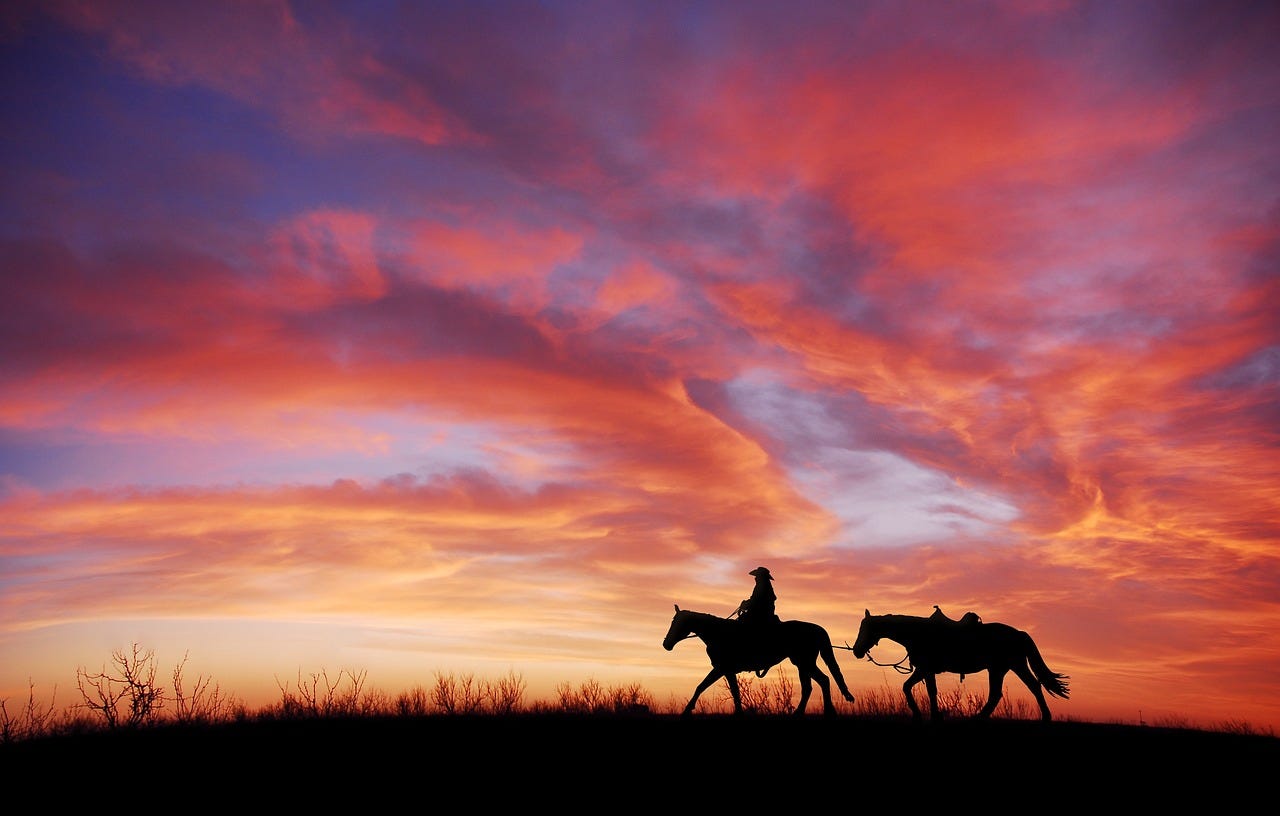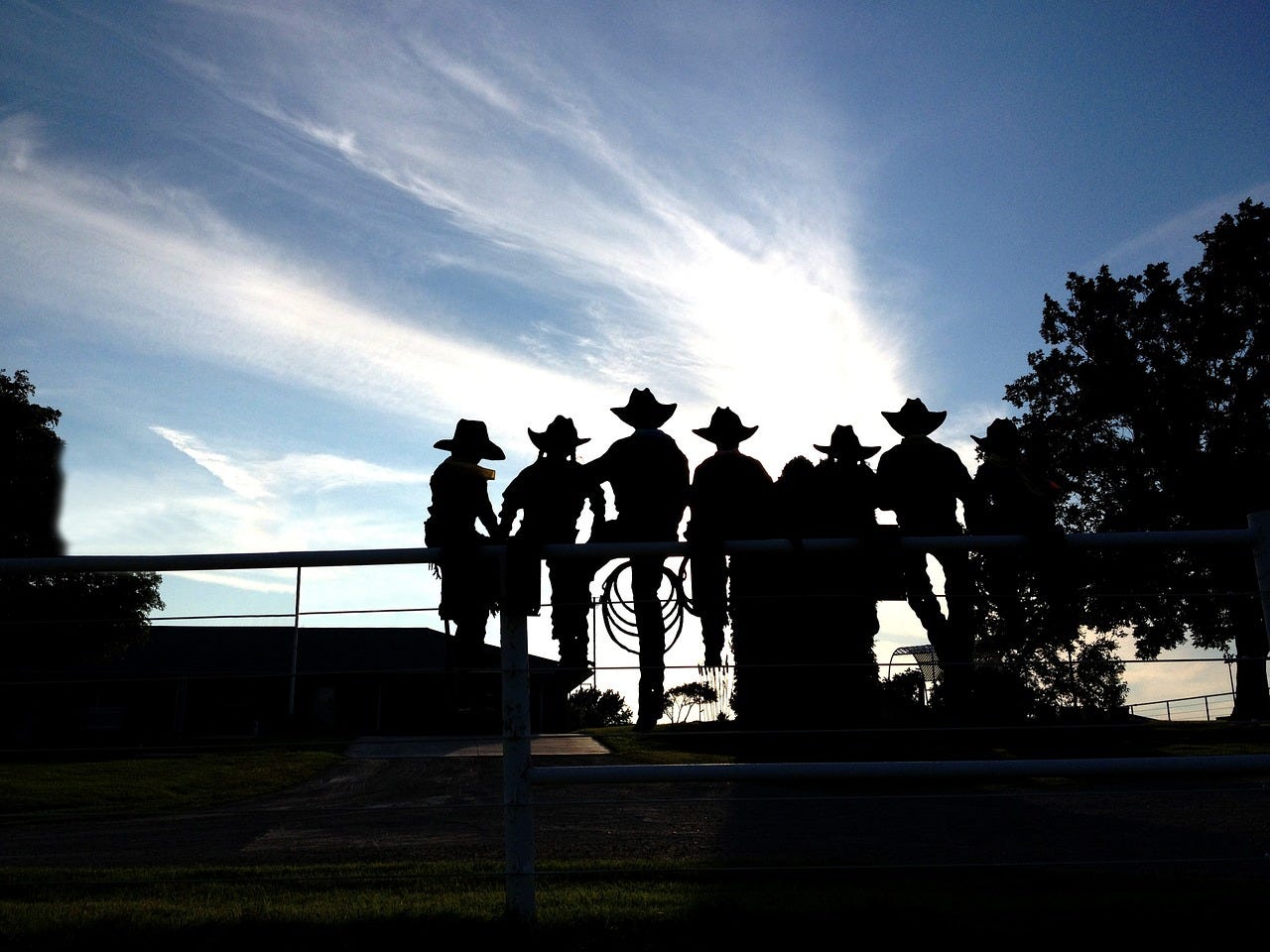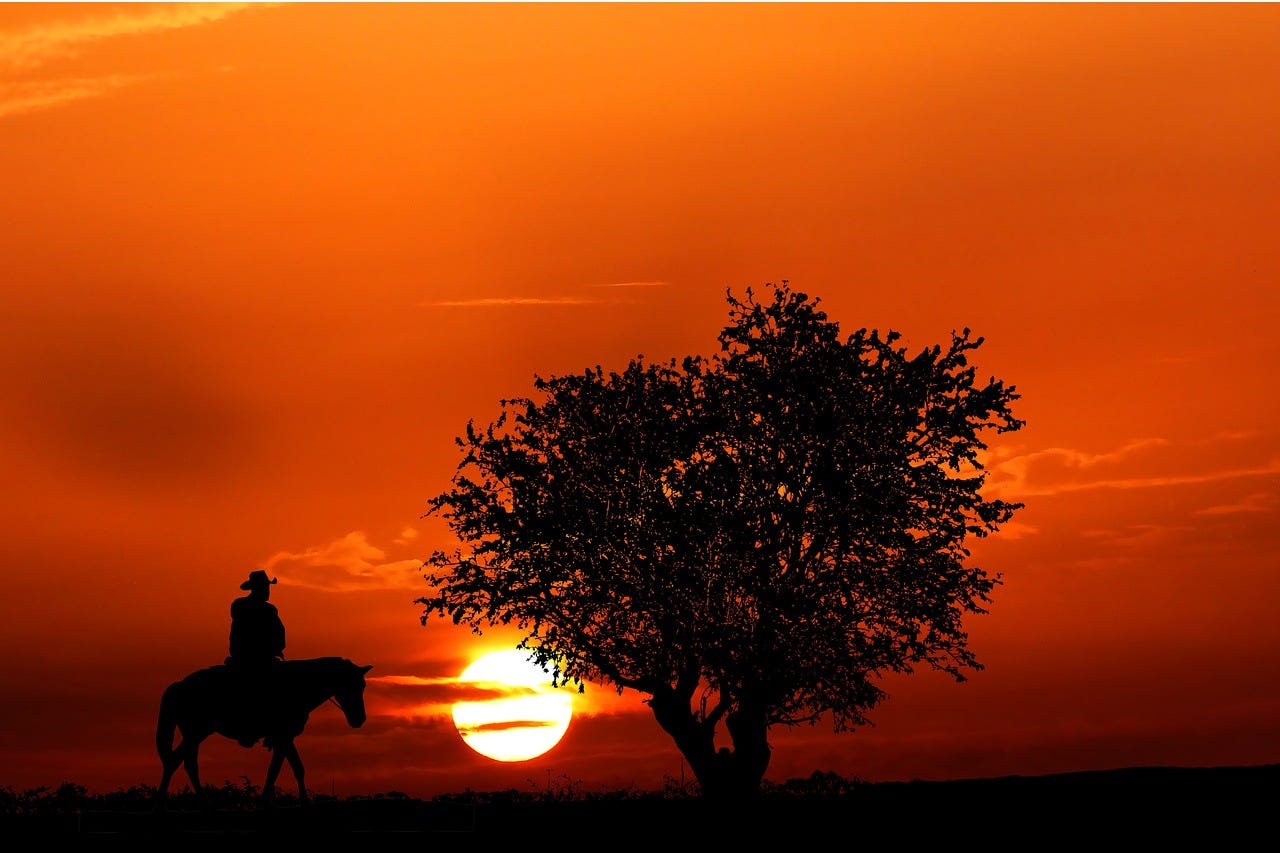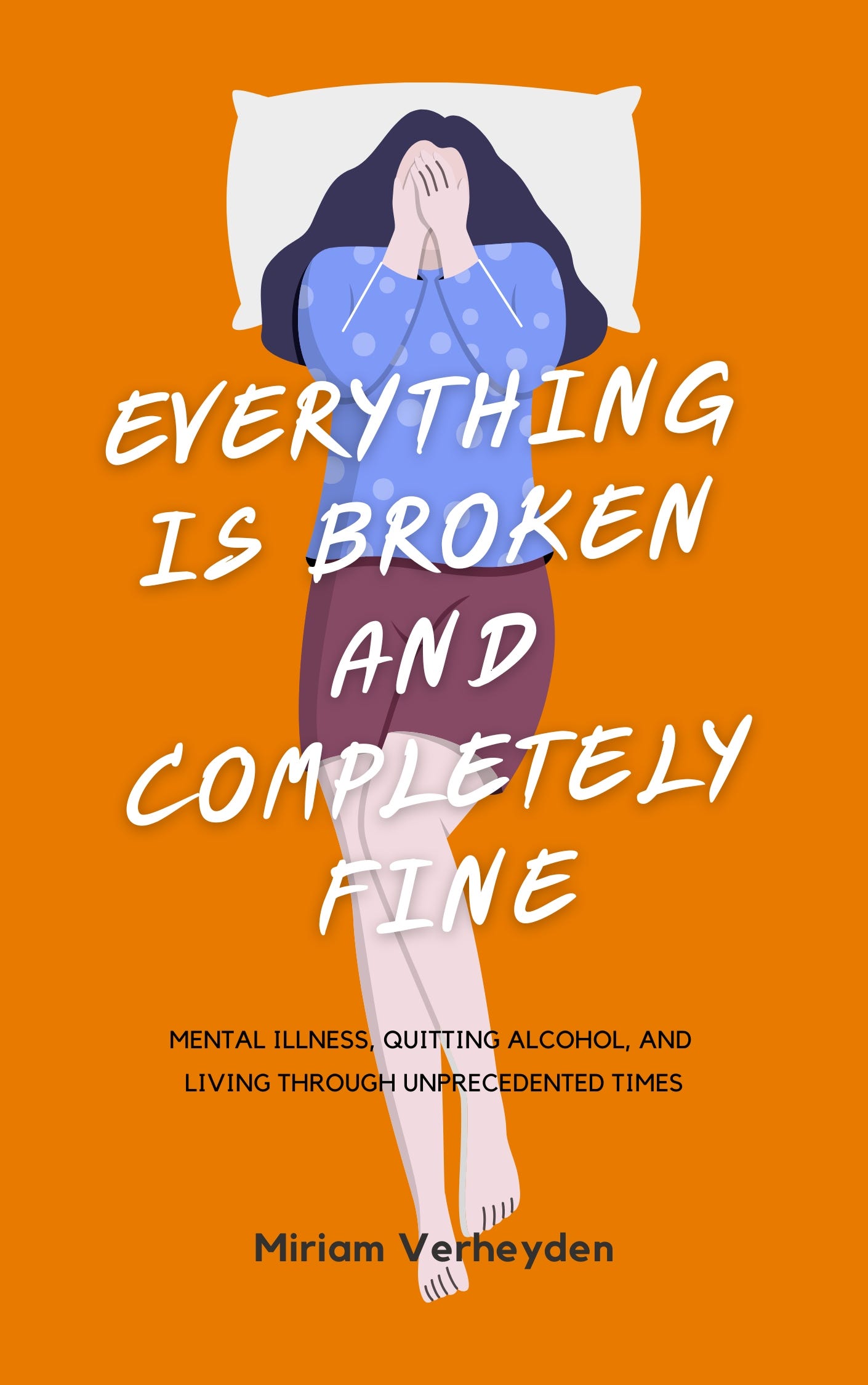“You are drinking beer?!” she exclaims delightedly.
I turn the bottle around and show her the ‘0.0’ print under the Corona label.
“Is it fake beer in a real beer bottle?” she asks in confusion.
“Yes, it’s nonalcoholic beer,” I explain.
“For a moment I thought you returned to the dark side,” she says good-naturedly, but I detect faint disappoinment.
I’m at a dinner party with my husband. We are 4 couples, and out of the 8 of us 6 are drinking. The other sober person is cowboy-sober, meaning he doesn’t talk about it. I don’t know if he never drank, if he drank heavily and quit, if there’s a medical reason for his abstinence.
I’ve met a few of these guys over the years, weathered cowboys who don’t talk about emotions, pain, or personal stuff, and out of respect I don’t ask the questions I want to ask: why did you stop? Was it as hard for you as it was for me? Do you miss it? Did you have any help?
I suspect that the answer to the last question is no, because I can’t for the life of me picture them sitting in a circle in AA, or talking about it all to a therapist. I imagine they decided one day to quit - and then they just did.
And does it really matter what the exact reason for it is? In the end it’s the same for all of us: alcohol didn’t serve us anymore.
Later that evening we discuss sleep. Or to be more accurate, the difficulty of getting a good night’s sleep and various sleep aids that might help. We women are all in varying stages of peri- or post-menopause, and the men are middle-aged verging on plain old. Sleep gets harder to come by as we age, and when I contribute that I’m sleeping fine, they chalk it up to my age (I’m the youngest of the group).
What I’m dying to tell them is that I know disrupted sleep. I want to tell them that I used to wake up every night, tongue sticking to the roof of my mouth, drenched in sweat and self-loathing, unable to get back to sleep because my heart was pounding so hard and my self-hatred was so fierce they kept me awake. I want to tell them that even if you don’t have “a problem” with drinking, it’s scientifically proven that alcohol leads to poorer sleep. I want to tell them that the simplest and quickest way to better sleep is to swap their nightly wine for herbal tea.
But I don’t say any of those things. Nothing gets you off a guest list quicker than touting the benefits of not drinking to a group of drinkers at a party. Talk about being a buzzkill! So I bite my tongue and keep quiet.
I’ve been sober for 600 days. Being in year 2 of sobriety is a vast improvement over year 1, where I had to actively fight the demons of addiction. The siren call of alcohol followed me around for months, and I had to resist it thousands of times, which is as exhausting as it sounds. I thought about wine all the time, missing it like the toxic, yet dear friend it had been, and I had to be careful about my movements, avoiding certain people and places that would have triggered me to drink again. Most people who quit drinking start a new hobby or exercise routine; I wrote a book about the experience.
Writing it while I was going through the first year of sobriety was tremendously helpful. Not only did it allow me to process my emotions, it also made me accountable. When you never hit rock bottom and are high functioning (many grey area drinkers are), it’s extremely tempting to say “fuck it, I’m going back” and abandon sobriety. Everything in your life is telling you that you overreacted and that your drinking is fine: society, your drinking buddies, all the successful people you know who enjoy their wine and are seemingly fine. Your brain also urges you to give it the dopamine release it craves, and nothing does the job quicker than several glasses of wine. Since I barely told anyone in the beginning that I quit, it would have been easy to abandon sobriety. In fact, it happened several times before - like most people, I failed a bunch of times before sobriety stuck.
But writing a book about mental health and problem drinking made me see how much alcohol had contributed to my anxiety and depression. What’s more, how could I tell the world I quit and then return to drinking? I couldn’t, so I didn’t.
It’s thrilling to have arrived at a place where alcohol completely lost its appeal. I cherish the freedom, the excellent sleep, the improved energy, and most of all the absence of shame. I experienced profound shame about my drinking, and living in shame is excrutiating. Being free of it is a gift I’ll never take for granted.
But sobriety is not without its challenges, and the one I’m dealing with now caught me completely by surprise.
Almost everybody in my life drinks. Instead of feeling envious of them like before, I have now arrived at a point where I feel sorry for them. Just like I had to bite my tongue at the dinner party about telling my friends that quitting booze would help their sleeping problem (and it would help SO much), I’m constantly tempted to shout from the rooftops that drinking is the biggest scam, the tobacco crisis of today.
The World Health Organization published a statement this year that no level of alcohol is safe.
It’s classified as a group 1 carcinogen (other carcinogens in that group include tobacco, radiation, and asbestos).
Health Canada recommend no more than 2 drinks a week - at which point you may as well quit completely. Who has just 2 drinks a week?
The Lancet listed alcohol as the most harmful drug in the UK in a 2010 study, ahead of heroin, crack cocaine, or tobacco.
There is a widespread debate that if alcohol was invented today, it would be prohibited for its catastrophic impact on our health.
I could go on, and sometimes I do, mainly to my husband. It’s excrutiating to see people you love consume something that makes them feel worse, but I also know only too well that going on about it doesn’t help. They will quit if and when they’re ready, and not a moment sooner.
In the meantime I’m resigned to the fact that I’m still one of the few in my circle who has escaped the dark side, hoping that more will join me.
It’s beautiful in the light.
✨ Miriam
If you’re interested in my story with alcohol and why I quit, read my book!









Miriam,rerally long ago, for a few years I worked as a barkeeper, it was fun, always being around people partying, celebrating, or just having a fun evening. After work, we'd clean the joint, do the til etc. and one evening it hit me, that, after so many people buying me drinks, I was (or felt) sober. That is when I quit drinking. We'd have wine around the house, because we always had people coming by, staying, eating, and I'd have a glass of wine with them but that was it. Some folks think I'm weird for not drinking (LOL) some find it suspicious. I have no problem with people drinking, and tell them it is not a problem that I don't. I'm meeting more and more people who quit drinking alcohol, and it is a good thing. In Holland there's a massive media campaign rolled out, to help people who over- use alcohol. Six (6!) different types of cancer are linked to drinking, so now they treat it like the anti smoking campaigns (Stoptober) and it is working. Don't worry about not fitting in, you are the healthy one, if people think you are odd for not drinking, fine, let them have the opinion, that it's all it is. Life is sweet, take it slow, and enjoy it. I love your blogs. Stay safe and happy and say hi to Richard for me